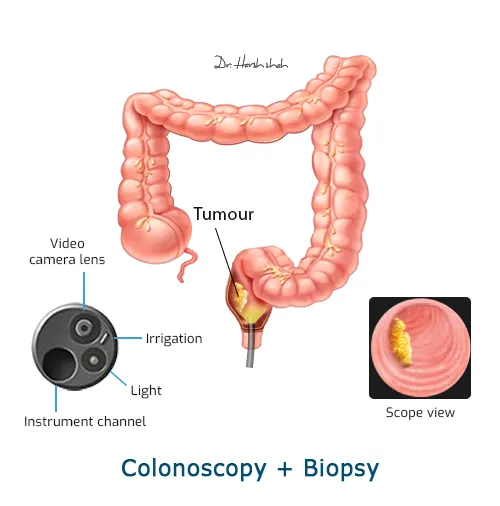
What You Can Do About Bowel Trouble After Rectal Cancer Surgery
After rectal cancer surgery, some people experience bowel issues like leaking, rushing to the toilet, or trouble controlling bowel movements. This is known as LARS.

Maulana Azad Medical College, Delhi, GB Pant Hospital, Delhi
Holds the highest degrees in Oncology - DrNB, MCh
Having 15+ years of experience in treating



11750+ Patients have been successfully
treated

15+ years of work experience as a liver cancer specialist

22+ Awards received by Dr. Shah for his achievements
In terms of techniques, Dr. Shah is at the forefront of rectal cancer treatment and surgery. He is skilled in performing complex rectal cancer operations with precision. His hospital is equipped with the latest technology, enabling him to offer advanced surgical options like rectal cancer surgery without colostomy.
This technique is particularly significant as it helps preserve the quality of life for patients post-surgery. Dr. Shah’s innovative approach to rectal cancer treatment and his use of cutting-edge techniques make him a standout rectal cancer specialist.
Dr. Shah employs advanced rectal cancer treatment methods, including precise rectal cancer operation techniques and stricture rectal management. His hospital specializes in rectal cancer treatment using the latest technologies to optimize patient outcomes. The colorectal surgery cost in India is managed effectively, ensuring affordability for rectal cancer treatment.
Dr. Shah is also a pioneer in making rectal cancer treatment in India more accessible and affordable. He is conscious of the rectal cancer treatment cost in India and strives to provide treatments that are both high-quality and cost-effective. His hospital, located in Ahmedabad, has become a beacon of hope for many seeking rectal cancer treatments. Under his guidance, the hospital has set a high standard for the treatment of rectal cancer, contributing significantly to the field and offering hope to countless patients undergoing rectal cancer treatment.
Dr. Harsh Shah’s hospital is not just a place for rectal cancer treatment; it’s a center of excellence where patients receive the best care from a leading specialist in the field. His expertise, innovative techniques, and pioneering spirit make his rectal cancer hospital a trusted name in rectal cancer care in India.
As a leader in colorectal cancer treatment, Dr. Shah ensures high-quality care, addressing complex rectal cancer cases. The hospital, under his guidance, offers innovative solutions with top colorectal surgeons in India. His approach ensures comprehensive care, elevating the treatment standards for rectal cancer treatment.
Rectal cancer is a kind of cancer that begins in the cells of the rectum. The rectum is the end part of the large intestine, right above the anus. Usually, it starts with unusual growths known as polyps, which can turn into cancer after a while.
Symptoms of Rectal Cancer:
Rectal cancer is typically staged using the TNM system, which stands for tumor, lymph nodes, and metastasis. The stages of rectal cancer are as follows:
Stage 0 (Carcinoma in Situ): In this earliest stage, abnormal cells are found in the innermost lining of the rectum. These cells may become cancerous and spread into nearby normal tissue.
Stage I: Cancer has formed and spread beyond the innermost tissue layer of the rectum to the second and third layers and involves the inside wall of the rectum, but it hasn’t spread to the outer wall of the rectum or outside the rectum.
Stage II: This stage is divided into subcategories (IIA, IIB, IIC), depending on how deeply the cancer has spread into the wall of the rectum or through the rectum to nearby tissues.
• Stage IIA: Cancer has spread to the outer layer of the rectum but not to nearby organs.
• Stage IIB: Cancer has spread through the outer layer and into nearby tissues or organs.
• Stage IIC: Cancer has spread through the rectum wall and into nearby structures or organs.
Stage III: Also divided into subcategories (IIIA, IIIB, IIIC), this stage indicates that cancer has spread to nearby lymph nodes but not to distant parts of the body.
Stage IV: This is the most advanced stage of rectal cancer. It is divided into two subcategories, IVA and IVB, depending on how far the cancer has spread.
• Stage IVA: Cancer has spread to one distant site, such as the liver or lungs.
• Stage IVB: Cancer has spread to more than one distant site.
Staging for rectal cancer are as follows:


Treatment options for rectal cancer:
Surgery: Surgery is often the main treatment for colon cancer. It involves taking out the tumor and nearby lymph nodes. How much surgery is needed depends on how advanced and where the cancer is.
Chemotherapy: This treatment uses special drugs to kill or stop the growth of cancer cells. It can be given before or after surgery to get rid of any leftover cancer cells or to lower the chance of the cancer coming back.
Radiotherapy for rectal cancer: This treatment uses powerful radiation beams to kill cancer cells in the rectum. It’s often used together with surgery and chemotherapy to get better results.
My mother was operated by Dr Harsh shah. She had a tumour. We were informed by other doctors that she will have a permanent bag. But Dr Harsh assured us & did the operation. She is alright now & without bag. Thank you sir

My friend had rectal cancer. Dr Harsh sir did robotic surgery and we could go back home in few days. He is efficient and too good. Highly recommend Dr harsh shah for Gastrointestinal Cancer treatment.

Wonderful experience with Dr harsh shah.He is best Robotic surgeon in Ahmedabad. The services that I recieve from Dr harsh sir is excellent .It's rare to find a doctor that combines such personal touches and care for patient. Thank you so much sir.we are very happy.




Tap Below to Listen

Tap Below to Listen


Dr. Shah’s team includes the best oncologist in Ahmedabad and a dedicated group of experts in colorectal cancer treatment. Collaborating with surgical oncologists and specialists in rectal cancer surgery, his team delivers seamless care. The integration of oncologist doctors in Ahmedabad makes his hospital a centre of excellence.
The Hospital also has 50+ bedded ICU with the latest support systems such as ventilators, dialysis machines & a team of best critical care doctors.
The foundation of Dr. Shah’s hospital is built on knowledge and trust. Dr. Shah is well-known for his expertise in rectal cancer treatment in India. He and his team stay updated with the latest advancements in the field, ensuring that patients receive the most current and effective rectal cancer treatment.
The trust patients have in Dr. Shah also proceeds from the transparency regarding the rectal cancer treatment cost in India. He ensures that patients are well-informed about their rectal cancer treatment options and the costs involved, making his rectal cancer hospital a trusted choice for patients seeking effective care.
The foundation of Dr. Shah’s hospital is built on trust and expertise. With transparency regarding colorectal surgery cost in India, he ensures patients are well-informed about rectal cancer treatment options. Recognized as the best oncologist in Gujarat, he upholds high standards in rectal cancer treatment and patient care.
Explore surgical photographs with caution. Please be advised that viewer discretion is recommended.


Robotic surgery has transformed the way rectal cancer is treated, giving surgeons better accuracy, control, and the ability to see more clearly. Here are some common types of robotic surgeries used for treating rectal cancer:
Robot-Assisted Low Anterior Resection (LAR): In this surgery, the part of the rectum with cancer is removed but the muscles controlling bowel movements are saved.
Robot-Assisted Abdominoperineal Resection (APR): APR is done when the cancer is very close to the anus, requiring the removal of the anus and making a permanent opening for stool to leave the body (colostomy).
Transanal Total Mesorectal Excision (TaTME): TaTME uses the benefits of surgery through the anus and robotic help. It accesses the rectum from the anus and uses a robot to perform the surgery.
Robotic Intersphincteric Resection: If cancer affects part of the anal sphincter muscle, only that part is removed along with the cancer.
Single-Incision Robotic Surgery: This method uses one cut, often at the belly button, to perform the whole rectal cancer surgery.




After rectal cancer surgery, some people experience bowel issues like leaking, rushing to the toilet, or trouble controlling bowel movements. This is known as LARS.

Key Risk Factors for Recurrence After Rectal Cancer Surgery Insights from a Nationwide Study

Evaluating the Efficacy of Total Neoadjuvant Therapy in Locally Advanced Rectal Cancer